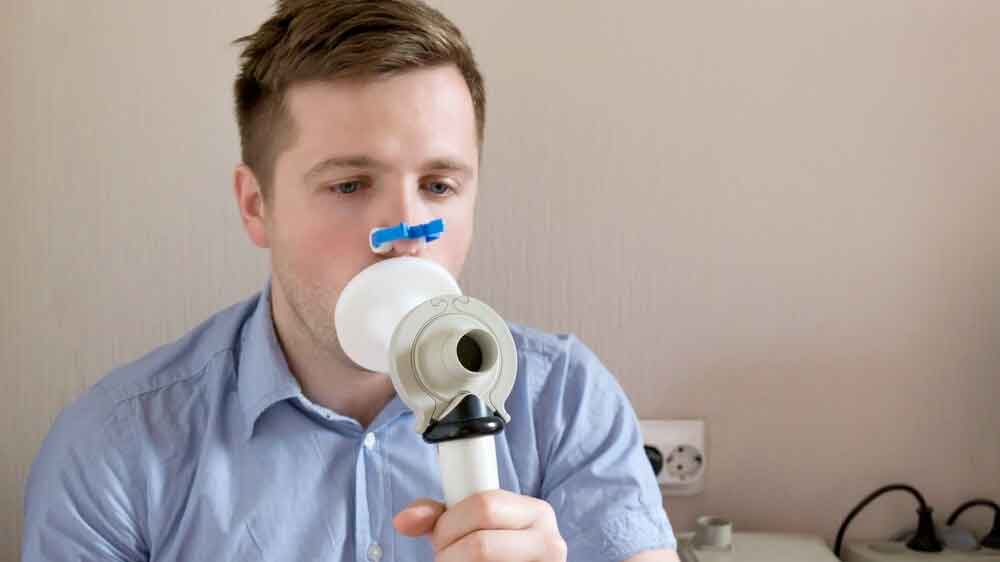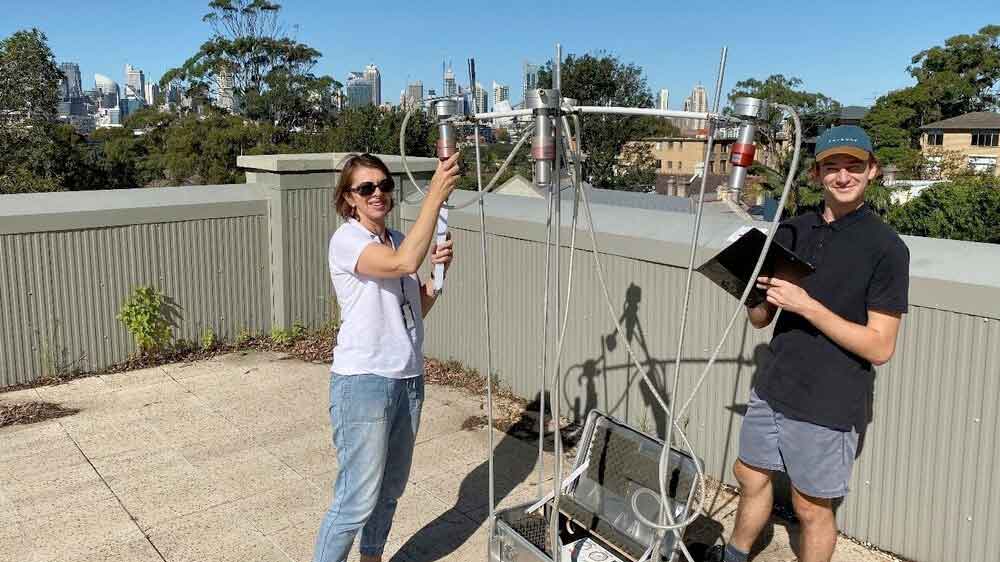The Woolcock Institute of Medical Research

Reflections on asthma – the rural pharmacist
Sherri Barden's pharmacy journey began thirty years ago as a Year 10 student doing work experience at a pharmacy.
The Woolcock's Professor Sinthia Bosnic-Anticevich interviewed Sherri about the changes she's seen in asthma management over the years, her greatest challenges, and her tips for people with asthma.
When did your interest in asthma start?
Asthma has always been a part of my life: my mother and brother both had moderate, persistent asthma. So I've always had that interest in asthma. Then five years ago I asked my boss if I could be an asthma educator, and he said yes straight away. I did the course, and from there it's just grown to where I am now, a pharmacist and asthma educator in rural New South Wales.
What changes have you seen over your time working in asthma?
There has been so much change in the asthma space over the last twenty years.
There are so many more preventers, and a preventer oral tablet (Montelukast) have become available. We now have combination preventers, and lots of new devices. We've had spacers go from the big bulky plastic things right down to a very small manageable size. We've gone from nebulisers being at the forefront, to spacers being used in emergency departments. We have seen availability of new treatments and new management strategies.
So there's just been so much change.
Have you seen a change in your patients over the years?
Patients are better managed with all these better therapies. People aren't relying on their relievers as much because there are so many more good management treatment options available.
For example, at our pharmacy, we don't let anyone using a pMDI leave without buying a spacer. Most people aren’t very interested in buying a spacer. But when you talk to them and educate them visually showing how much more effective it is, people understand. I find that people are using their spacers more than before.
What are your main challenges?
As a rural pharmacist, I get to see my customers regularly. So I can build that relationship and get to know my customers very well. I spend a lot of time with my respiratory patients.
But when I ask them to go to their doctor to get a review or to get an updated asthma action plan, often they don't put their respiratory condition at the forefront of their conversations with their GPs – only if they're having an exacerbation will they talk about it.
So I see this real gap in their healthcare that I try to fill by checking in on my patients any time I fill a prescription for an inhaler.
Another challenge is that a lot of adult patients don't have asthma action plans – they think plans are just for children. But we need to try and change that perception. Unfortunately, pharmacists can't sign off on asthma action plans, so I'm forever referring patients to their doctors for a plan, but then they don't come back.
It's a challenge to find the time to write to a patient's GP to ensure they get a review. I need to start doing that more with a patient’s consent and a little bit faster. And I would love to think of better ways to collaborate with other health professionals and GPs to get plans in place for patients.
As an asthma-educated pharmacist, I offer asthma education to all my patients, but a lot of them decline it unless they're having an exacerbation. It's a real challenge to capture them when they're well, to provide that education, so they know what their triggers are, how to minimise their triggers, and to know what to do when they're starting to lose control.
What tips do you have for patients with asthma?
My main tip is if you haven't had asthma education, please find out where you can get asthma face- to-face education: through your GP clinic, your local hospital, or your local pharmacy.
Failing that, Asthma Australia and the National Asthma Council have all the resources you need. Asthma Australia has free asthma education over the phone, and they have an 'asthma assist' newsletter, so patients can sign up to that and get up-to-date information monthly.
So that's my number one tip for people with asthma – get that asthma education so you have a good knowledge of your condition, can maximise your inhaler technique, know how and when to use your medications, have an asthma action plan, know your triggers and be empowered to effectively self- manage.
About Sherri
Sherri Barden is a community pharmacist and asthma educator at Moama Village Pharmacy in the border town of Moama NSW.
Sherri became a qualified pharmacist in 1997, and has since worked in metropolitan, regional and rural pharmacies in New South Wales, Victoria and Queensland. She has practised in Moama for the last 7 years.
More stories from the front line
This is the fifth in our series of interviews for Asthma Week 2021. See the other interviews in Reflections from the asthma front line.
Find out more
- About our asthma research
- News from our respiratory research
- We’re proud to be part of the Air Nutrition – you are what you breathe campaign for Asthma Week 2021
Support our work
The Woolcock Institute of Medical research is a not-for-profit research institute. Your tax-deductible donation to the Woolcock will help us improve the quality of life for people affected by breathing disorders like asthma.
Here are some examples of what your donation can do.












